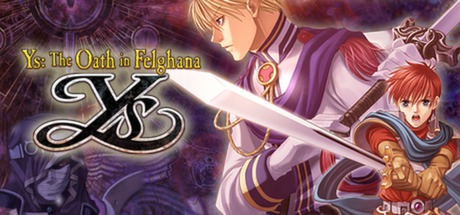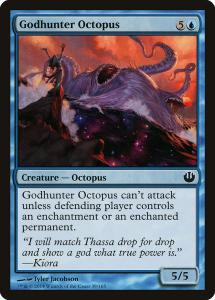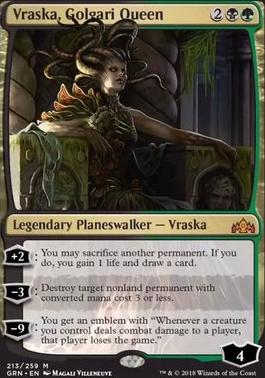
There weren’t many video games that won me over in 2018, but a game did come along late in the year that captured my attention in a big way. As a result, 2019 has started on a high note.
I’d looked forward to a lot of the big console games I picked up in 2018. Ni No Kuni 2 felt a bit like a Studio Ghibli film, but ultimately the characters and story were too insipid to bear. Red Dead Redemption 2 was the successor to a game I’d consider an all time great, but I lost interest after about 10 hours because it felt like playing the first one all over again. God of War was a slightly random pick for me, and I enjoyed it for a while but got bored of the linearity and limited gameplay. Even Forza Horizon 4 was a let down, despite having so much fun with the previous two games! As it turned out, hooning around the countryside where I grew up just felt wrong. I like Forza Horizon for the escapism, but the familiarity of England means the latest game comes with too much baggage. The closest a new release came to winning my heart was Dragon Quest XI, a bright and colourful, pantomime jrpg with likeable characters, a fairy tale story, and lots of humour. I’ll get back to it at some point, when I feel like grinding to get past a tricky boss.

On a brighter note, two console games I very much enjoyed playing for the first time were some old Ys titles on the PSP: Ys, the Oath in Felghana, and Ys VII. All the Ys games I’ve played have been really impressive – good characters, fast and fluid action, an interesting world, and a lively, but often tragic story. I wish they were more well known! The Oath in Felghana is the oldest Ys game I’ve finished and it turned out to be quite challenging, but the amazing soundtrack made up for all the times I wiped out! I also played through Dark Souls 3 for the first time. I was very impressed, but I’ve never been so glad to finish a game – I didn’t end up feeling elated or proud, just… relieved, like I was free of a huge burden. It left me worn out, and gave me nose bleeds and tinnitus (seriously!). Following that I left Dark Souls Remastered unfinished. I doubt I’ll ever go back to it – my ears are still ringing.
And then, sometime in October, I went to a game shop in Wellington and my son bought a big box of cheap Magic: The Gathering cards.
 Magic: The Gathering (or just Magic) is a collectible card game based around the idea of two planeswalkers (the players!) fighting it out with creatures they can summon and other magical spells. There are thousands of different Magic cards, all with different abilities and strengths, so putting together a 60 card deck is like deciding what pieces you want on your side of a chess board. There are myriad ways to approach a game, from hard and fast spell slinging, to building up a powerful army of creatures. The different colours of cards roughly correspond to different strategies (red is all about being fast and aggressive, while green is slower but you can summon very powerful creatures), and there’s nothing to stop you mixing up colours to find interesting synergies. In fact, collecting cards and ‘brewing’ a deck with cards you find particularly fun to play is a huge part of the attraction. One day I’m going to complete an Octopus deck, if only I can figure out how to attack with all the tentacles at once…
Magic: The Gathering (or just Magic) is a collectible card game based around the idea of two planeswalkers (the players!) fighting it out with creatures they can summon and other magical spells. There are thousands of different Magic cards, all with different abilities and strengths, so putting together a 60 card deck is like deciding what pieces you want on your side of a chess board. There are myriad ways to approach a game, from hard and fast spell slinging, to building up a powerful army of creatures. The different colours of cards roughly correspond to different strategies (red is all about being fast and aggressive, while green is slower but you can summon very powerful creatures), and there’s nothing to stop you mixing up colours to find interesting synergies. In fact, collecting cards and ‘brewing’ a deck with cards you find particularly fun to play is a huge part of the attraction. One day I’m going to complete an Octopus deck, if only I can figure out how to attack with all the tentacles at once…
When we got home from the game store we sorted the cards into colours, figured out what all the symbols and numbers meant, and (with a bit of help from the interweb) put together our first decks. My son chose red, and I went for white (also kinda aggressive, but with a more tactical scope). I’d always thought it looked like a horrendously complicated game to play, but it turns out the basic mechanics are very simple. You can play one ‘mana’ card per turn, and with enough ‘mana’ you can cast spells to summon creatures, attack your opponent directly, or pull off other tactics. The only really tricky part is keeping track of what all the special abilities on the cards mean, and what they do during each turn. Abilities like “Flying” or “Indestructible” are straightforward enough. But things like “At the beginning of your end step, gain control of target nonland permanent controlled by a player who was dealt combat damage by three or more Pirates this turn” can be hard to keep track of! Anyway we only had simple cards to begin with, and it was great!
Straight away I knew this was the game I had been waiting all year to play. After so many gaming disappointments in 2018, and the feeling that all the console games I played were the same thing over and over again, it was exciting to do something totally different. I’d missed playing something that required a bit of thought. There’s a very appealing balance of strategy and randomness in Magic – you know what cards you have in your deck and what strategy you want to play, but you also have to deal with not knowing which cards will come off the top of your deck at the start of the game. I’m not a very cerebral game player (I always wished I was better at chess, but I’m pretty crap), so this mixture of planning and randomness is very appealing and I like being able to blame my losses on a bad opening hand instead of simply being inept(!). I also think the artwork is stunning.
 But I’ll admit there’s a side of Magic I find rather dark. My son and I started out with a box of cheap cards that were all ‘commons’ – they’re plentiful and you can put a deck together for pennies, but overall they’re not very powerful. Buy more booster packs, pay more dollars, and you might pick up some better cards or ‘rares’ that make your deck stronger. Buy lots more boosters, pay lots more dollars, and you might find some ‘mythic rares’ which will let you build a truly competitive deck. Up to a point, Magic is ‘pay to win’. Because when it comes down to it Magic is war, and war is as much about spending power and economic might as it is about clever tactics. Having Vraska on your side is always going to be a massive advantage. “Magic: The Gathering addiction ‘worse than meth’” sounded ludicrous when I read it ages ago. But now I totally get how it could be like that!
But I’ll admit there’s a side of Magic I find rather dark. My son and I started out with a box of cheap cards that were all ‘commons’ – they’re plentiful and you can put a deck together for pennies, but overall they’re not very powerful. Buy more booster packs, pay more dollars, and you might pick up some better cards or ‘rares’ that make your deck stronger. Buy lots more boosters, pay lots more dollars, and you might find some ‘mythic rares’ which will let you build a truly competitive deck. Up to a point, Magic is ‘pay to win’. Because when it comes down to it Magic is war, and war is as much about spending power and economic might as it is about clever tactics. Having Vraska on your side is always going to be a massive advantage. “Magic: The Gathering addiction ‘worse than meth’” sounded ludicrous when I read it ages ago. But now I totally get how it could be like that!
On the other hand – what sport doesn’t cost money to play? Golfers can spend a fortune on golf clubs. If you want to be in the game, don’t turn up with a bag full of rusty irons and a wonky putter! I guess it’s all about context. With some ground rules like “no mythic rares” or “commons only” (a variant called Pauper) it’s easy to play for little cost. You can have your own “kitchen table” rules to prevent costs spiralling out of reach. It’s to be accepted that broadly played, competitive formats like Standard and Modern have a higher economic barrier to entry.
All of which brings me to my favourite game of 2018: Magic Arena, the online version of Magic that’s free-to-play on PC. It doubles as a very nice way to learn how to play (with a short but useful tutorial), and a source of endless opponents for both ranked play and casual fun. The gameplay feels fluid and dynamic, with expressive animations and intuitive controls, and of course it keeps track of all those tricky abilities for you! The match making isn’t bad – it tries to find other players and decks at a similar power level to you – although most matches are “best-of-one” which means there’s no adjusting to your opponents deck between games. You’re thrown into the ring and the last person standing is the winner! I like that for the quick nature of play, but there’s an element of rock-paper-scissors about it – some matchups are mostly decided before the game even starts. You still need to collect good cards to build powerful decks, but it’s feasible to do this without spending any money by completing daily quests for their rewards (although, of course, you can spend a whole lot of money to speed up the process).
So despite really liking the feel of paper cards, I think Magic Arena is the version I’ll play the most. However, we’ll be playing on the kitchen table as often as we can as well. I have unfinished business with my son… ;)

